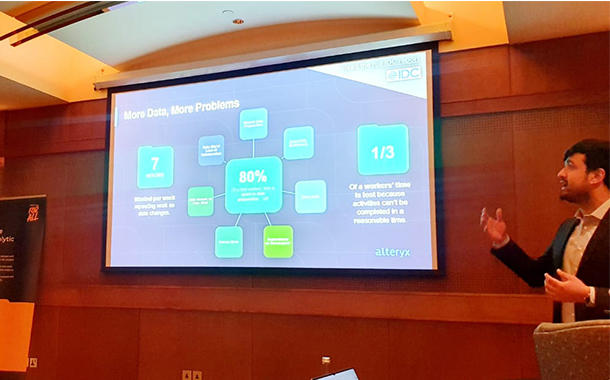Fostering diversity from the top down and utilising as many diverse viewpoints as possible is the key for these strategies to succeed. From increased performance to a dramatic uptick in innovation, developing diversity and inclusion policies comes with inherent bottom-line benefits.
Recent research from global management consultants McKinsey found that, on average, ethnic diversity in businesses increased the likelihood of financial outperformance against the local industry average by an average of 36% in 2019.
Gender diversity sees a similar result, with diverse organisations, on this metric being a quarter more likely to outperform their local industry average.
With such a clear link between diversity and inclusion to business success, it is no secret that the more diverse the workforce; the richer the business outcomes will be. For leaders who already work to increase diversity metrics in hiring practices, the best first step has already been taken.
An inclusive culture is the next required step for leaders, who must engage and reward inclusive behaviours identified across team projects. These leaders win when they hear all ideas and engage in problem solving across teams with all levels of employees.
But to be truly effective, these diversity and inclusion practices need to reach all areas of an organisation, from boardroom to entry level staff. Integrating diversity and inclusion initiatives is the requirement to doing business in an increasingly diverse and multicultural world.
The difference between success and failure here rests on the level of support and penetration these initiatives have across your business. While some organisations have, erroneously, attempted to drive their D&I initiatives through a steady flow of new entry-level employees, efforts must start at the top, with new hires in strategic positions, then flow down to all departments and employees at all levels.
As with any other successful company initiative, it needs senior buy-in and representatives at the highest level of the business leading by example and informing on diversity metrics to build awareness across the enterprise.
In practice, this increased focus on diversity and inclusion delivers a mixture of experiences that not only make us better at what we do but provides a more complete informational foundation from which to do business with other areas. It is not enough to merely have diverse viewpoints – you need diversity in your decision making.
While diversity and inclusion are clearly critical to business success, it can be taken further by, holding everyone in a business accountable, and encouraging the use of – in the literal sense, more inclusive language. In short developing a culture of We.
This democratisation of responsibility comes with a comparable democratisation of action. At its core, a shift to a We Culture empowers employees to take responsibility for their own outcomes.
Three ways this culture shift can start are, to firstly delegate the decision-making process – enabling employees to actively shape their career paths with accountability, impact, and the skills development they need now and in future roles. Second is through the use of We based communication. Thirdly is consistent praise – until these behaviours become self-sustaining.
There is a correlation between linking diversity and inclusivity undertakings to any business activities. Upskilling, democratising, and turning employees into leaders are all inexorably linked goals. The higher quality diversity and inclusion initiatives, the better questions are asked, the higher quality of questions can be answered and the more business value breakthroughs can be achieved.
The ability to see different problems through different perspectives is one of the most powerful tools in the drive towards developing an increasingly globalised business. Doing so, also helps reduces inherent bias in the decision process. Business leaders will need to focus on the journey, and not the end of the diversity and inclusion metrics charts.
Diverse hiring, with inclusive decision making, needs to be part of the company culture which will attract amazing talent; further supporting these efforts. Success will run in tandem with hard work, effective leadership, continuous feedback and acknowledging employee successes.
The technology sector is moving at a breakneck pace, and upskilling, diversity, and inclusion initiatives should operate hand in hand to ensure businesses keep up. With data everywhere and offering the ability to solve the worlds’ problems, just 15% of the world’s data scientists are women.
The evolving landscape of the data science and analytics market creates an inherent need for organisations to foster data-driven cultures fuelled by collaboration and diversity, presenting an opportunity for all demographics traditionally underrepresented in the technology workforce, to accelerate their careers by embracing analytic roles.
For business leaders, this represents an opportunity to look within for specialists with the right attitude to problem solving, not just technical aptitude, to support and upskill in both data literacy and analytics.
Stripping away bias and striving for an equitable relationship with employees is a vital first step to inclusion. Ultimately, we need to develop a culture that not just allows for the unique differences between people but celebrates them. A business developed on a foundation of multiple, diverse viewpoints is more prepared to thrive in today’s hyperglobal environment.
Key takeaways
- Just 15% of the world’s data scientists are women.
- Diverse organisations are a quarter more likely to outperform their local industry average.
- It needs senior buy-in at the highest level, informing on diversity metrics to build awareness.
- An inclusive culture is the next required step for leaders, who must reward inclusive behaviours.
- Diversity and inclusion can be taken further by, holding everyone in a business accountable.
- Encouraging the use of, in the literal sense, more inclusive language.
- Democratisation of responsibility comes with a comparable democratisation of action.
- At its core, a shift to a We Culture empowers employees to take responsibility for their own outcomes.
It is no secret that the more diverse the workforce, the richer the business outcomes will be and the best first step has already been taken.























